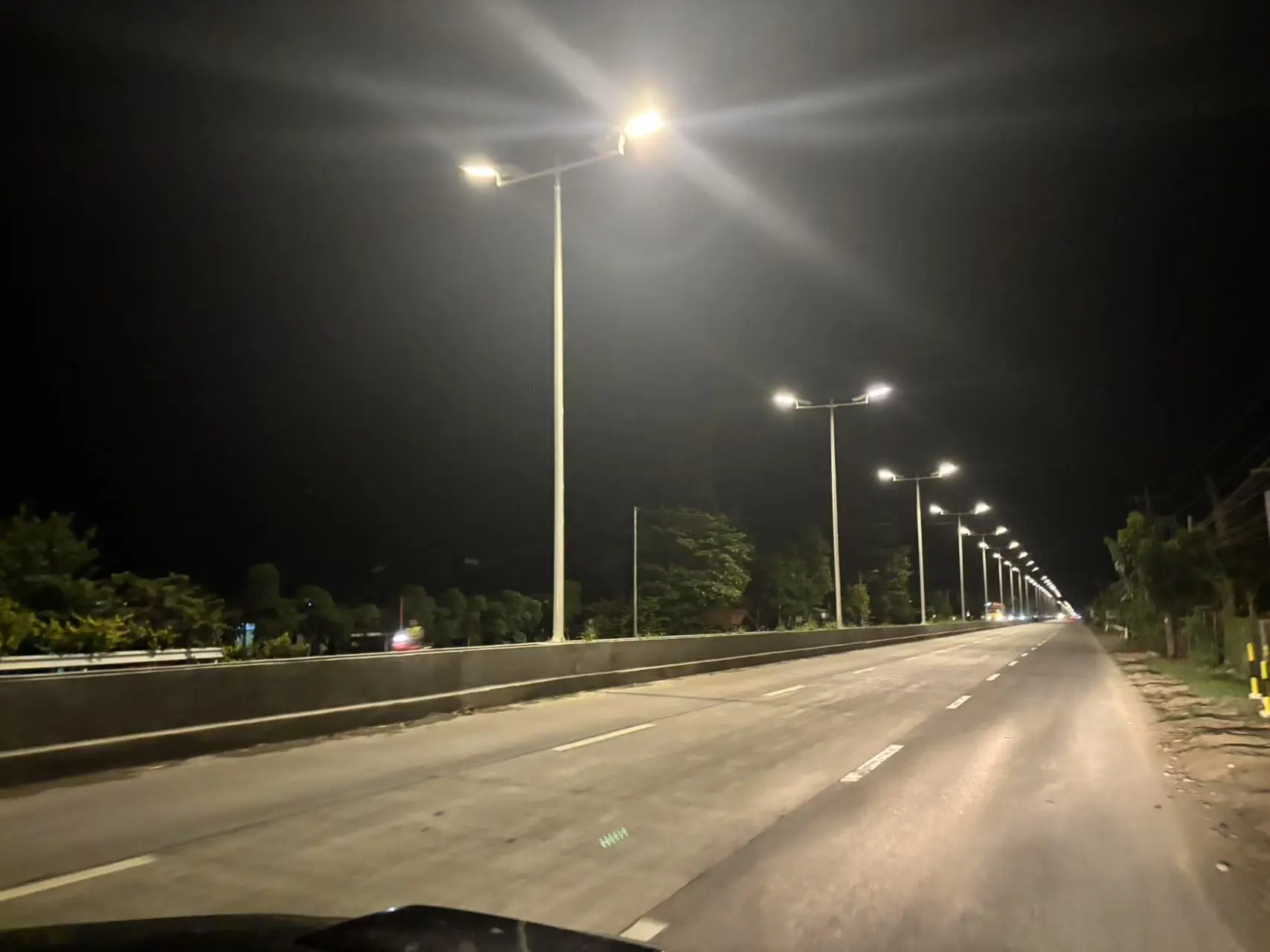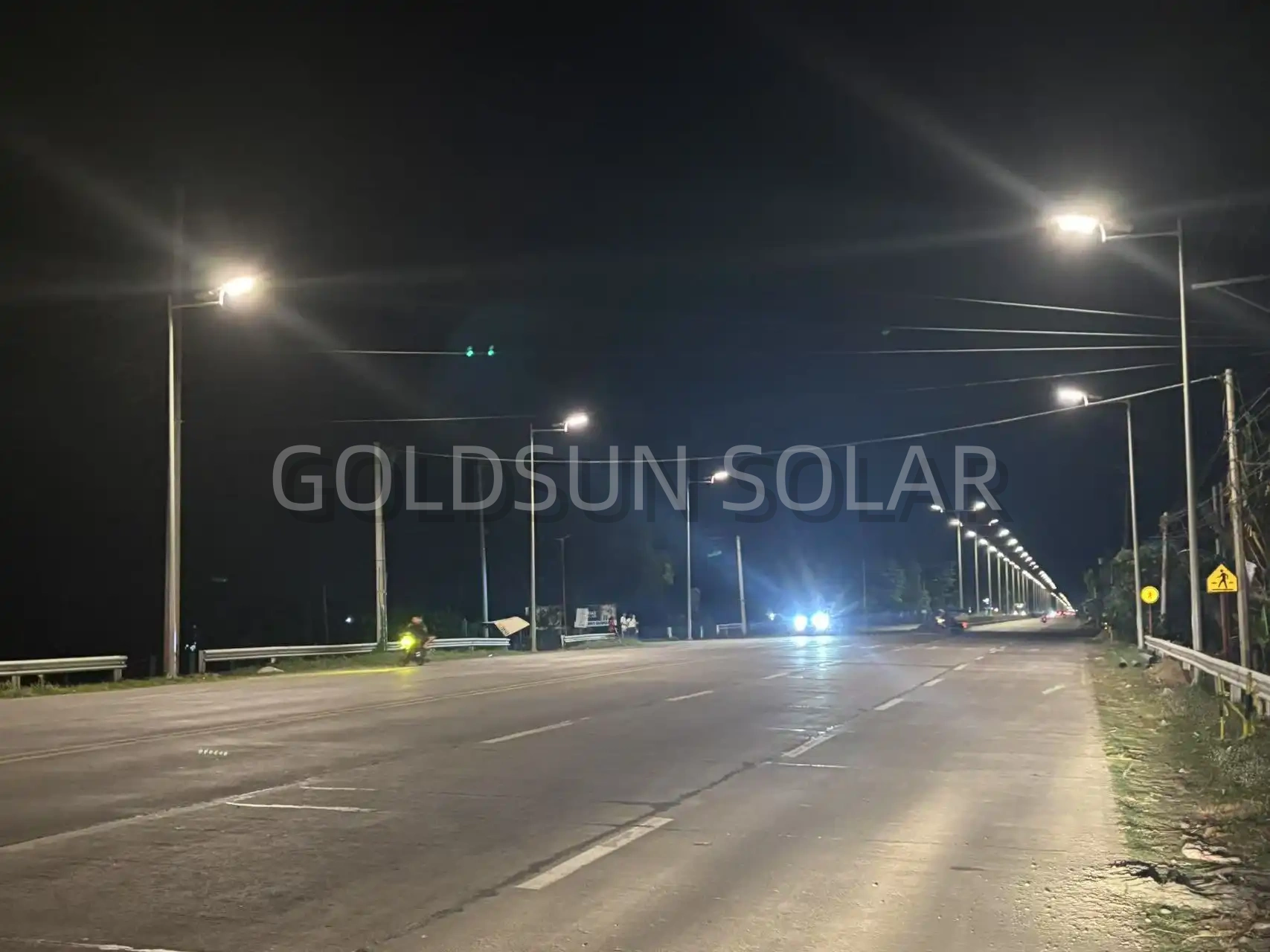The Latest Solar Street Light Technology in Africa You Should Know
Africa, a continent with vast potential for renewable energy, is witnessing a revolution in street lighting technology. Solar-powered street lights are becoming increasingly popular across the continent, offering sustainable and cost-effective solutions to illuminate roads, public spaces, and communities. This blog post explores the latest advancements in solar street light technology in Africa(Solar Street Lights Africa), highlighting the benefits and innovations that are transforming the landscape of urban and rural lighting. From smart features to improved efficiency, these developments are not only enhancing safety and visibility but also contributing to the continent's efforts towards sustainable development and energy independence.

What are the key benefits of solar street lights in Africa?
Cost-effectiveness and energy savings
Solar street lights in Africa offer significant cost-effectiveness and energy savings compared to traditional lighting solutions. The initial investment in solar-powered systems may be higher, but the long-term benefits far outweigh the costs. With abundant sunshine across much of the continent, Solar Street Lights Africa harness free and renewable energy, eliminating the need for expensive grid connections and ongoing electricity bills. This is particularly advantageous in remote areas where grid infrastructure is lacking or unreliable. Moreover, solar street lights require minimal maintenance, reducing operational costs over time. The energy savings are substantial, as these lights operate independently of the grid, conserving valuable resources and reducing the carbon footprint of urban lighting. Many African countries are embracing this technology to cut down on energy expenses and allocate funds to other critical development areas.
Improved safety and security
One of the most significant advantages of Solar Street Lights Africa is the enhanced safety and security they provide to communities. Well-lit streets and public spaces deter criminal activities and reduce the risk of accidents, especially in areas previously plagued by darkness. Solar-powered lights ensure consistent illumination throughout the night, even in regions with unreliable grid electricity. This improved visibility not only makes pedestrians and drivers feel safer but also facilitates better surveillance and community policing efforts. In rural areas, solar street lights have been instrumental in reducing human-wildlife conflicts by illuminating pathways and deterring nocturnal animals from entering populated areas. The increased sense of security promoted by these lights has led to extended business hours and improved social interactions in many African communities, contributing to economic growth and social cohesion.
Environmental sustainability
Solar Street Lights Africa represent a significant step towards environmental sustainability on the continent. By harnessing clean, renewable solar energy, these lighting systems help reduce reliance on fossil fuels and decrease greenhouse gas emissions. This aligns with Africa's commitment to combating climate change and preserving its rich biodiversity. Solar street lights do not contribute to air or noise pollution, making them ideal for both urban and rural environments. The use of LED bulbs in these systems further enhances their eco-friendliness, as LEDs consume less energy and have a longer lifespan compared to traditional lighting options. Additionally, the reduced need for extensive underground wiring and electrical infrastructure minimizes habitat disruption during installation. Many African countries are incorporating solar street lights into their green energy initiatives, showcasing their commitment to sustainable development and setting an example for other regions to follow.
How are smart technologies enhancing solar street lights in Africa?
Integration of IoT and sensors
The integration of Internet of Things (IoT) technology and advanced sensors is revolutionizing Solar Street Lights Africa. These smart features enable real-time monitoring and control of lighting systems, optimizing their performance and efficiency. IoT-enabled solar street lights can automatically adjust their brightness based on ambient light conditions, traffic patterns, and pedestrian activity. This adaptive lighting not only conserves energy but also ensures appropriate illumination levels at all times. Sensors can detect malfunctions or maintenance needs, allowing for prompt repairs and reducing downtime. Some advanced systems even incorporate air quality sensors, providing valuable environmental data to local authorities. The connectivity of these smart solar street lights also facilitates remote management, enabling centralized control and data collection for improved urban planning and energy management across African cities.
Motion detection and adaptive lighting
Motion detection and adaptive lighting technologies are enhancing the functionality of Solar Street Lights Africa, making them more responsive to real-time needs. These systems use sophisticated sensors to detect the presence of pedestrians, cyclists, or vehicles, automatically adjusting the light intensity accordingly. When no movement is detected, the lights can dim to conserve energy, brightening again when activity resumes. This smart feature not only maximizes energy efficiency but also reduces light pollution, benefiting both urban and rural environments. In wildlife-rich areas of Africa, adaptive lighting helps minimize disturbances to nocturnal animals while still ensuring human safety. Some advanced systems even incorporate directional lighting, focusing illumination where it's needed most and further optimizing energy use. The implementation of these technologies in solar street lights across Africa is demonstrating how innovation can balance human needs with environmental considerations.
Data collection and analysis for urban planning
Solar Street Lights Africa equipped with smart technologies are becoming valuable tools for data collection and analysis, aiding urban planning efforts across the continent. These intelligent systems can gather a wealth of information, including pedestrian and vehicle traffic patterns, environmental conditions, and energy consumption data. This information is crucial for city planners and policymakers in making informed decisions about infrastructure development, traffic management, and energy allocation. For instance, data on foot traffic can help identify areas that may benefit from additional pedestrian facilities, while vehicle movement patterns can inform traffic light timing and road expansions. Environmental data collected by these smart lights can contribute to climate change studies and air quality improvement initiatives. Moreover, the energy consumption data helps in optimizing the solar street light systems themselves, ensuring they operate at peak efficiency. As African cities continue to grow and evolve, the insights provided by these smart solar street lights are becoming increasingly valuable in creating more sustainable, efficient, and livable urban environments.
What are the latest innovations in solar panel and battery technology for street lights in Africa?
High-efficiency photovoltaic cells
The latest Solar Street Lights Africa are benefiting from significant advancements in photovoltaic cell technology. High-efficiency solar panels are now capable of converting a greater percentage of sunlight into electricity, even in less-than-ideal weather conditions. These improved panels often utilize multi-junction cells or incorporate materials like perovskite, which can achieve higher conversion rates than traditional silicon cells. The increased efficiency means that solar street lights can operate reliably with smaller panels, reducing overall system size and cost. Some cutting-edge designs even integrate transparent solar cells into the light fixtures themselves, maximizing the surface area available for energy collection. These high-performance photovoltaic cells are particularly advantageous in African regions with variable sunlight conditions, ensuring consistent performance across diverse geographical areas.
Advanced energy storage solutions
Energy storage is a critical component of Solar Street Lights Africa, and recent innovations in battery technology are enhancing their performance and longevity. Lithium-ion batteries, known for their high energy density and long cycle life, are becoming increasingly common in solar street light systems. These advanced batteries can store more energy in a smaller space, allowing for more compact and efficient designs. Some manufacturers are exploring the use of solid-state batteries, which offer even higher energy density and improved safety. Another promising development is the integration of supercapacitors, which can rapidly charge and discharge, complementing traditional batteries and extending overall system lifespan. In African contexts where extreme temperatures are common, thermally resistant battery technologies are being employed to ensure reliable performance in harsh conditions. These advancements in energy storage are crucial for maintaining consistent illumination throughout long nights and during periods of limited sunlight.
Improved charge controllers and power management
The efficiency and reliability of Solar Street Lights Africa are significantly enhanced by advancements in charge controllers and power management systems. Modern charge controllers utilize maximum power point tracking (MPPT) technology to optimize energy harvesting from solar panels under varying conditions. These intelligent controllers can adjust charging parameters based on battery state, temperature, and available sunlight, maximizing energy capture and extending battery life. Some advanced systems incorporate artificial intelligence algorithms to predict energy needs based on historical data and weather forecasts, ensuring optimal energy allocation. Power management innovations also include smart load shedding capabilities, which can prioritize essential lighting functions during periods of low energy availability. In the African context, where maintenance resources may be limited, self-diagnostic features are being integrated into these systems, allowing for remote monitoring and troubleshooting. These improvements in charge control and power management not only enhance the performance of solar street lights but also reduce the need for frequent maintenance, making them more suitable for widespread deployment across diverse African regions.
Conclusion
The latest solar street light technology in Africa(Solar Street Lights Africa) represents a significant leap forward in sustainable urban development. From cost-effective and environmentally friendly lighting solutions to smart, data-driven systems, these innovations are transforming African cities and rural areas alike. The integration of IoT, advanced sensors, and high-efficiency components is not only improving public safety and energy efficiency but also providing valuable insights for urban planning. As this technology continues to evolve, it promises to play a crucial role in Africa's journey towards energy independence and sustainable growth. The adoption of these advanced solar street lights demonstrates Africa's commitment to innovative, eco-friendly solutions that address both immediate needs and long-term development goals.
Yangzhou Goldsun Solar Energy Co., Ltd. specializes in solar street lights, offering an impressive production capacity of 10,000-13,500 sets annually. With ISO9001 certification and products meeting CE, RoHS, SGS, and IEC 62133 standards, we have a global presence, having installed over 500 projects in 100+ countries, including UNDP, UNOPS, and IOM. Our solar lights are backed by a 5-year warranty, and we offer customized solutions with OEM support. We ensure fast delivery and secure packaging. Contact us at solar@gdsolarlight.com for inquiries.
References
- African Development Bank Group. (2021). "Lighting up Africa: The Role of Solar Street Lights in Sustainable Development."
- United Nations Environment Programme. (2022). "Solar-Powered Street Lighting: A Game Changer for African Cities."
- International Energy Agency. (2023). "Solar PV in Africa: Technology Trends and Market Outlook."
- World Bank Group. (2022). "Smart Cities in Africa: Harnessing Solar Technology for Urban Development."
- Renewable Energy World. (2023). "Innovations in Solar Street Light Technology: African Case Studies."
- African Union Commission. (2021). "Sustainable Energy Solutions for Africa: The Promise of Solar Street Lighting."

Share your inquiry, and receive a tailored quotation!

Yangzhou Goldsun Solar Energy Co.,Ltd.
